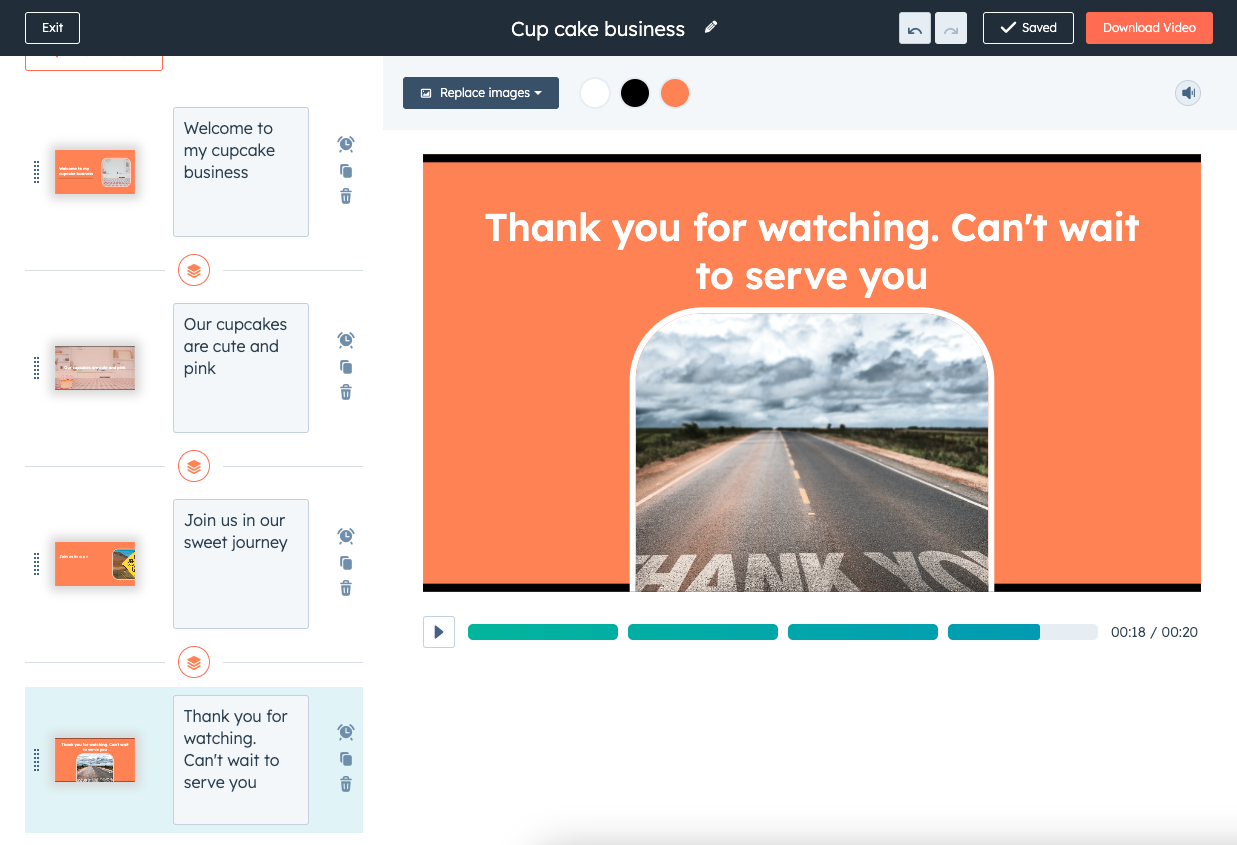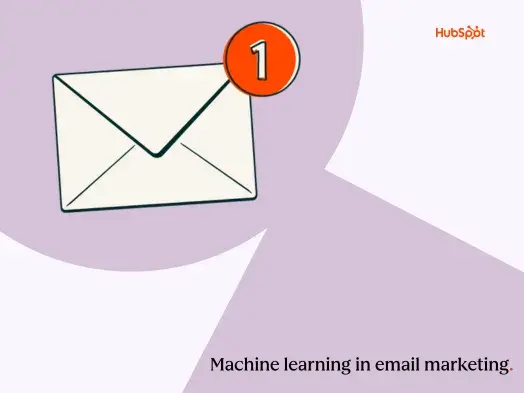How AI Will Change Podcast and Video, According to Riverside's Head of Marketing
1. AI will enable podcast and video hosts to facilitate deeper conversations.
As someone who regularly interviews thought leaders for the HubSpot Blog, I'm all-too-familiar with the challenges of thinking of good questions to ask your guests.
And one of the worst mistakes an interviewer can make is asking a guest the same question they‘ve been asked countless times before. It could come across like you haven’t done your research, and your audience might feel that the interview is redundant and doesn't offer anything new.
Fortunately, AI is a powerful tool for researching your guest and formulating questions ahead of the interview.
As Grunfeld told me, “When dealing with guest-style interviews, AI helps tremendously with research. For instance, it can help you understand someone's point of view on a given topic and you can then create new questions to see whether that's still the case, or challenge it and go deeper.”

Consider prompting an AI chat tool to provide unique questions for a given interviewee, or simply to conduct research regarding their company to help fill in the background context you need to facilitate an engaging interview.
2. AI will allow you to test your concept during pre-production.
Pre-production tasks — including on-location shootings, set design, and finding the right talent — can be time-consuming and expensive.
And, as Grunfeld points out, you might have a vision in your head that is difficult to convey to your team. So despite your best efforts, your team might be mis-aligned when it comes to where you're all headed.
Grunfeld told me, “Within the whole pre-production process right now, when you work with a crew, everything is based on what you say. But maybe the visualization for you is different than for me.”
He continues, "I think what AI allows you to do with tools like Midjourney is take the guesswork out of it and visually show and test your concept so you can determine whether it's as compelling as what you have in mind."
Ultimately, AI allows you to save time and resources by ensuring you get it right the first time. As Grunfeld puts it, “AI allows you to create alignment and to be much more effective in terms of figuring out what you need in terms of set, talent, camera angles, etc. It allows you to de-risk while being more prepared and productive.”

3. AI will transform the post-production process by drastically reducing the time it takes to edit.
One of the most challenging aspects of podcast and video production is the post-production process, which is why Grunfeld believes this is where AI will have the biggest impact.
As he points out, “Compared to a 30 or 60-minute conversation you might have in the production stage, post-production can take up to 10 hours. So there is a disproportional effort required to take care of the post-production.”
Post-production requires you to define success and set clear criteria; and, as Grunfeld told me, AI works best under those parameters.
For instance, AI can quickly transcribe your calls with accuracy. Riverside offers its own incredibly accurate AI transcription tool for free. Best of all, it's available in 100+ languages.
You can then use AI to automate the content creation process. As Grunfeld told me, “You don't need to go into the content anymore and manually make sequences or determine when you want to show which person, and with which layout. It's all going to be automated. And this means anyone — regardless of knowledge-level — can make engaging, talking-style videos with the click of a button.”
4. AI will help you promote your podcast or video episodes more effectively.
Oftentimes, I decide which podcast episode I'm going to listen to next based off of what I see on Instagram.
When I see an engaging clip of a podcast conversation, it often hooks me into wanting to hear the entire episode.
And I‘m not alone. As Grunfeld points out, "We can’t expect anyone to invest an hour or more watching a video or listening to a podcast without knowing if it‘s worth their time — so social clips are an effective opportunity to get awareness on a video or podcast, but they’re a lot of work and they're tedious."
He continues, “This is another area where AI will step in. Rather than manually combing through an hour video conversation, you can let AI pick the magic moments automatically and create a clip that is ready to be published.”
For instance, Riverside just launched its own tool, Magic Clips, which leverages AI to identify key moments in your recording and edit them as standalone clips. This enables you to optimize your videos or podcast episodes for various social media platforms.
You can also leverage AI to create more compelling social promotion around your video or podcast episode. For instance, you might ask it to create you title, video or podcast summaries, show notes, and more.
Best of all, you can use AI to repurpose your video or audio for social posts or your blog, which enables you to get more value from each piece of content you produce.
5. AI enables your team to focus on the most important aspect of podcast or video: Storytelling.
Grunfeld told me, “Right now, people are under-evaluating the time spent on the overall content strategy and how video and or audio or podcasts fit in, and they're under-evaluating the importance of the premise of an individual episode or conversation.”
He encourages podcast and video producers to take the time to think about the strategy, and try to connect the dots between what you‘re making and what you’re selling — and ultimately, how it all connects back to your business.
Fortunately, AI will help producers' earn time back to focus on these higher-picture components.
Grunfeld says, “AI tools help you allocate the time you save to really focus on the premise of the content you're creating. And AI also ensures production quality that fits your brand. When you're a business, the content you put out into the world shapes perception, so this is critical.”
6. AI can solve the knowledge gap and allow for more diverse perspectives.
One of the most exciting aspects of AI is how it can remove barriers in terms of creative expression, technology, resources, and knowledge. In other words, it can make podcast or video creation more accessible.

Historically, podcasting or video production requires audio or video engineering skills, editing skills, and storytelling skills. But if AI is able to offload most of the engineering and editing skills required, that just leaves one thing: Storytelling.
And Grunfeld told me this last shift is the one he is most excited about.
He says, “Videos and podcasts are about telling stories. And a lot of people might not realize they have a special story to tell. It can be difficult to tell your story in a way that makes you proud.”
He continues, “AI turns you from an engineer editor or heavy-duty creator towards more of a curator. You are the storyteller, and you're just curating the editing and structure you can use to bring your story to life. Which means more people will be able to express themselves.”
He adds, “I think the future of video and audio will be more diverse in terms of thought and perspective – which ultimately creates more conversations and more progress.”
Finally … Will avatars replace real hosts?
One of the concerns I have when it comes to AI and podcast or video production is the notion that AI might take the place of human podcast or video hosts.
Fortunately, Grunfeld doesn‘t believe this will become the norm. He told me while he could see room for AI avatars when it comes to straightforward tutorial-based video or audio content, he doesn’t see AI taking the place of human-to-human conversations.
As he puts it, "I think it's the human-to-human element that gives energy and that allows you to build on top of each other, and I’m not sure if an avatar can create that same emotional response."
"And so, while I imagine there will be use cases for avatar-led creations, I cannot imagine having a conversation between two people — except one is a thought leader with a great story, and the other is an avatar. Because if there's no energy, there's no need to have a conversation in the first place."
Artificial Intelligence





![AI email subject lines that drive 3x more revenue and actually convert [+ exclusive insights]](https://53.fs1.hubspotusercontent-na1.net/hubfs/53/ai-email-optimization-1-20251014-4500151-1.webp)






-1-20250905-2237709%202.webp)